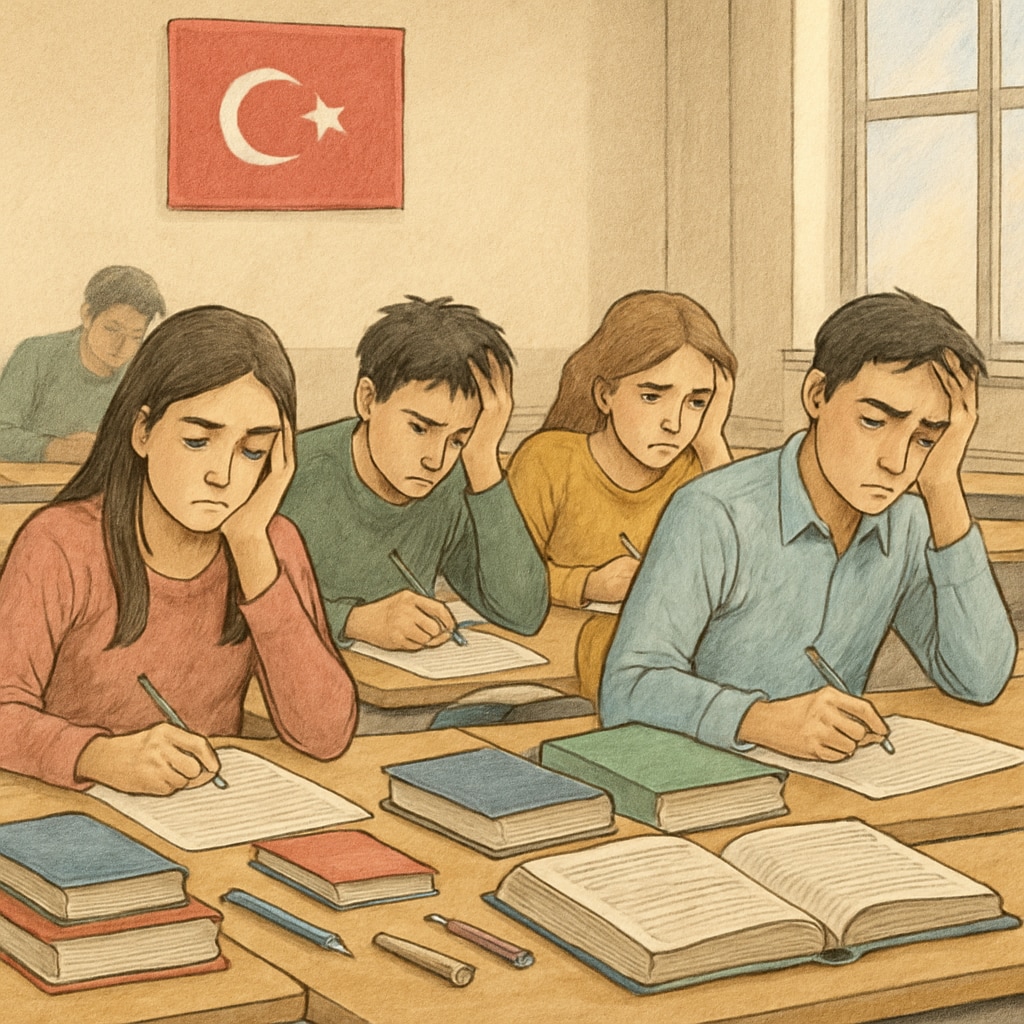Turkey’s education system, built around centralized exams, has long been criticized for the pressure it places on students and its limitations on holistic development. In contrast, the UK’s A Levels model offers a flexible and student-centered approach that allows learners to explore their strengths and interests. This article aims to compare the two systems and provide strategic insights for education reform in Turkey and other countries facing similar challenges.
Centralized Exams: The Core Issue in Turkey’s Education System
Turkey’s education system revolves around high-stakes, centralized exams such as the YKS (Higher Education Institutions Exam). These exams determine university admissions and often dictate the trajectory of students’ futures. While this system ensures uniformity, it comes at a cost:
- Pressure and Anxiety: Students face immense pressure to perform, leading to widespread stress and mental health issues.
- Limited Skill Development: Focus on rote memorization sidelines critical thinking, creativity, and problem-solving skills.
- One-Size-Fits-All: The lack of flexibility restricts students from pursuing their individual interests.

As a result, many students experience burnout and fail to develop competencies that are critical for success beyond academia. According to a report on Turkey’s education system, the emphasis on exams has overshadowed the need for well-rounded skill-building and personal growth.
A Levels: A Model for Personalized Learning
In contrast, the UK’s A Levels system offers a more personalized and flexible approach to education. Students typically choose three to four subjects to study in-depth, enabling them to focus on areas that align with their interests and career aspirations. This model has several advantages:
- Flexibility: Students have the freedom to select subjects, fostering engagement and passion for learning.
- Skill Development: Emphasis on coursework and practical assessments encourages critical thinking, research skills, and creativity.
- Balanced Assessment: A combination of exams and coursework reduces reliance on high-stakes testing.

Furthermore, the A Levels system prepares students for higher education and careers by equipping them with transferable skills. According to Britannica’s overview of UK education, this model emphasizes the importance of tailored learning experiences, enabling students to excel in their chosen fields.
Strategic Insights for Education Reform
Turkey and other countries with centralized exam systems can draw valuable lessons from the UK’s A Levels model. Below are key recommendations for reform:
- Introduce Flexibility: Allow students to choose subjects that align with their strengths and career goals.
- Reduce Exam Reliance: Incorporate coursework, project-based learning, and continuous assessments to balance evaluation methods.
- Focus on Holistic Development: Integrate extracurricular activities, critical thinking workshops, and creativity-building programs into the curriculum.
- Support Mental Health: Provide counseling services and stress management training to help students cope with academic pressures.
While reforming entrenched systems is challenging, the long-term benefits—enhanced student well-being, improved academic outcomes, and better preparation for future careers—make it a worthwhile endeavor.
Conclusion: Breaking Free from Exam-Centric Models
Turkey’s exam-focused education system highlights the pitfalls of centralized testing, while the UK A Levels model demonstrates the advantages of personalized learning. By adopting elements of the A Levels framework, Turkey can pave the way for a more balanced, flexible, and student-centered education system. These reforms are essential not only for reducing exam pressure but also for nurturing the next generation of thinkers, innovators, and leaders.
As countries worldwide grapple with similar challenges, the need for strategic education reform has never been more urgent. The lessons from this comparison serve as a powerful reminder that education should empower students, not constrain them.


